The following interview was conducted for the Boulder Writers’ Workshop by Lori DeBoer. Lori is the founder of the Boulder Writers’ Workshop and works as an independent writing teacher and coach. She is a contributing editor for Short Story Writer and has had more than a thousand articles and essays published in newspapers, magazines and literary journals, including The New York Times.
Erik V. Wolter is a screenwriter, author and producer with more than twenty screenplays to his credit. If you haven’t already, be sure to also read Part I of this interview.
Is it possible to be a screenwriter working in Colorado, or do you have to fly to the West Coast a lot?
The sources available online make it possible to be a screenwriter anywhere. Being in LA and in a position to make personal connections is certainly a plus, but in no way is it necessary anymore.
Your most recent novel, Break the Stage, is based on screenplay you wrote for a movie that is now being filmed. Can you talk about that story and its genesis?
Getting hired to write the screenplay for Break the Stage came as a result of striking up a conversation with a director while working out at a fitness center. That assignment led to them optioning a series of scripts and even some unfinished projects of mine they liked because they are looking for movies with a positive message for young people.
Both TV and feature filmmakers have fallen in love with adaptations of novels, especially but not exclusively true stories. Because of my first book and the adaptation of a novel I did for a production company with the rights to The Trials of Adrian Wheeler, I now get asked to adapt other books to screenplays or the reverse, novelize a script. Break the Stage, the book, is a novelization of the script. As a result, it reads more like a movie but with details, back story, and personal reflection of the characters that sometimes fail to come across in a visual medium. Although I always admired real novelists for their prose and poetic style, I was (still am) thoroughly intimidated. Novelistic style in a screenplay is verboten, so lucky me. I am most comfortable with screenwriting, but willing to work on the skills of writing one finds in a traditional novel.
What has it been like to live the Hollywood life? Have you been involved with the shooting?
The closest I’ve come to living the Hollywood life was watching Entourage on a regular basis.
Break the Stage is being shot entirely in and around Orlando, and I was on set for the first week of filming. Seldom do screenwriters get to enjoy seeing first-hand the process of taking what they have written and making it come to life. It was a treat to say the least. Typically, directors are reluctant to have the writer on set for fear of having the writer interfere with the director’s vision. In my case, the relationship I had with the director was positive. He wanted my input. And the fact that I was also executive producer didn’t hurt either. That said, I may have ruffled a few feathers of actors and crew a couple of times by stepping in when I saw dialogue or action of the actors straying significantly from the storyline. The younger actors in particular sometimes didn’t realize that nuances in behavior or dialogue shouldn’t be dismissed or changed with an ad-lib. It could alter their character or some other thread in the story down the line that would make no sense. Scenes are not filmed in the order they appear in the script so it is easy for less experienced actors to miss the big picture. Call backs for retakes days later because the story has been compromised are expensive.
You’ve done well recently in a competition for screenplay writing. Can you tell us a little bit about that?
There is one school of thought that screenplay competitions are a waste of time and money, partly because the number of entries is mind-boggling, making chances of winning slim. Many contests are criticized as being nothing more than money machines for the organizers. There is a flip-side to that cynicism. They do offer a chance of getting a script read, usually by someone who can make a difference. Odds are better if the script advances to the later rounds. Some contests offer feedback for a little more money, so if you request feedback you’re practically guaranteed they have read the entire script. Unless the contest rules state otherwise, the read of your screenplay may end after ten or fifteen pages. And in the final analysis, some contests stand out from the rest. Page, Nicholl, BlueCat, Austin, Screenplay Festival, Script Pipeline, Tracking Board, Final Draft, Scriptalooza all have excellent reputations. If that seems like a long list, there are many more out there who aren’t in the same ballpark.
I go for long periods of time not entering, but whenever I like to get a sense of where the script stands compared to what else is out there I will enter. There is always hope that it will do well enough to not abandon the story and take a shot at another rewrite. If what I have doesn’t advance past the first round, I know it has serious problems. But I never enter with any thoughts of winning. In the first place, winning is no guarantee that your script will get made. Many never do. Making the finals will at least make your script worthy of a writing sample that may open a door to a writing assignment somewhere in the industry.
A screenplay based on Loyalty on Trial made the Finals of the Page Awards in 2012. I have had a few others place in the semi-finals of contests. This year Footsteps of My Father was a Finalist in BlueCat and the Screenplay Festival. And I was honored to receive a first place in the 2015 Ink Awards for my screenplay, Break The Stage, and in the nonfiction category for my book, Loyalty on Trial: One American’s Battle with the FBI.
Do you have a genre that you prefer to write in? Can you speak about the differences between the genres?
Serious drama is my preference. Maybe that’s because I’ve never been a fan of anything not grounded in reality, meaning Sci-Fi might have a realistic story just set in the future. A thriller may be scary yet realistic, but horror too far-fetched. Fantasy and supernatural don’t do anything for me either, but mystery and suspense do. And I have to admit, I do enjoy those so-called “chick flicks,” love stories or romantic comedies.
What writers have influenced you and why?
Jack Kerouac, Salinger, and Kurt Vonnegut made my head spin when I was very young. I admired Faulkner, Hemingway, and Steinbeck as a high school student. Emerson and Whitman made me think. I envied Frost and Sandberg as poets. Bertrand Russell set my head straight. And when it comes to screenwriters, I would love to have just a fraction of the talent of Mamet, Sorkin, Simon, Lucas, or Spielberg.
How have you gone about improving your writing craft?
I began by reading as many books on screenwriting as I could find. I still look for anything new that has been released. There are more blogs and websites offering advice than one can keep up with, but Script Shadow by Carson Reeves is one that I read daily. Reading screenplays that are made available on line is a great way to learn what works and what doesn’t. Coverage and feedback from professional analysts has been invaluable.
What do you find most challenging aspect of writing and how have you overcome that challenge?
In screenwriting, structure has been a challenge. Establishing characters distinctive voice in writing dialogue is a continuing struggle. In my brief adventure in novel writing, I constantly fumble POV. I’m afraid that overcoming these challenges is a work in progress. Oh yes, commas. Commas do me in more often than I like.
Do you have a writing routine?
I’m usually at my desk by 5am. From then on, my day may or may not be solid writing, but it will be definitely related to my work. With projects in development or like now with a script in production, emails, texts, and phone calls intrude with focused writing. I may be working on a new script, researching, pitching, and rewriting a couple of projects all at the same time. Which ones get the most attention will depend on deadlines, some self-imposed, some real. If I feel compelled to shut out all these other distractions, I will block out a few hours to just write, deal with all the non-writing necessary nonsense, then return to writing setting aside another block of time, either late afternoon and/or late at night.
Are you a “plotter” or a “panster”?
I create a rough outline of the story or beat sheet. I like to script the opening and ending based on my logline. In the outline I try to identify the inciting incident, first act turning point, the midpoint, and all is lost moment that begins the third act. I will also write up a brief bio and back story of the main characters. But once I start into actually writing the script, I don’t allow myself to be bound by that outline. If the characters take me in a different direction, I will see where it takes the story and change my storyline or scene sequences if need be.
How do you come up with your ideas?
I have found that my own experiences may often serve as a foundation of an idea. Social issues and relationships with others tend to get my attention. I may see something in the newspaper, on TV or the internet that sparks a “What if?” I used to take my dog to this dog park in Florida. There was a wooded area adjacent to it where you could wander through as well as the normal open area that fronted a lake. It looked like an ideal spot for a homeless person to set up camp. Totally separate to the dog park, I often saw a homeless man on a bike while I was on my way home from school. He had a little basket on the front of the bike. There was an ongoing controversy of a historic home about to be demolished in town. Next thing I know, I’m writing a romantic comedy about a homeless guy who puts his little dog in the basket on his bike who lives in the woods at the dog park. A young teacher who is fighting to preserve her historic home encounters this mysterious charismatic homeless guy at the dog park. Their dogs, although polar opposites, like each other, and then… What was the question again?
What intrigues you the most about writing and storytelling? Characterization? Plot? What?
Characterization and dialogue intrigue me the most. If I go into why, this interview will never end and I will have a ton of emails to answer, fallen further behind in my latest project, and anyone still reading this is already about to click that x at the top of the page and go back to their own writing.
Do you ever get discouraged and why? What keeps you going?
As an older writer, one who started so late in life, I take rejection with a grain of salt. I don’t get discouraged, I look at it as a learning experience and plod on, keeping in mind the sense of urgency that I have to catch-up, if you will, before “Father Time” declares FADE OUT:
How have you grown as a writer over the years? What do you know now that you didn’t know when you started out?
Admittedly, I am a long way from being a “household name” as an author or screenwriter, but after ten years of effort, and if all goes right during the next five years, it looks like I’m in a position to make a few movies and write a few more books. It’s been a fun ride.
One thing I told a class of students recently that is a lesson I learned and may be worth repeating. “Whether you are wanna-be writers or dream about some other career; talent is way over-rated. The cliché is accurate. Take advantage of the opportunities given to you to learn the skills required, work at them harder and longer than you ever thought possible, seize the chance to take advantage of luck that may come your way, and stay the course, as long as you love what you are doing. You may not win the Oscar, be # 1, or super-rich, but you will have a level of success that allows you to feel good about yourself and to live your dream.”
That pretty much sums up my journey.
What can we expect from you next?
How about if I keep it short and simple next time I’m asked a question? Seriously, I have a sequel in the works to Break the Stage the movie, and high hopes for a couple of scripts in development. I am in the process of collaborating with another writer to novelize some of my existing scripts, and collaborating with a writer to revise a script. And then… never mind, I’ll keep you posted.
A big thanks to both Erik V. Wolter and Lori DeBoer for sharing this wonderful interview with us!

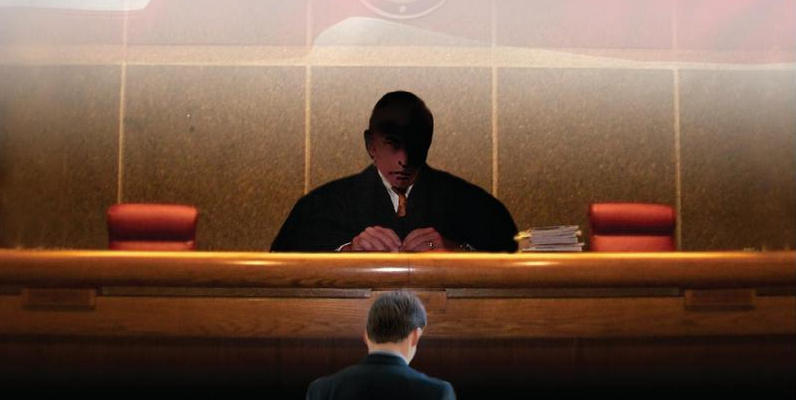
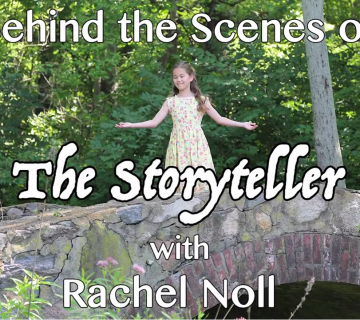
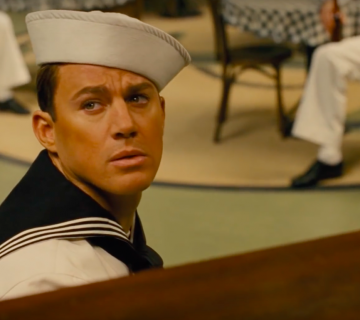
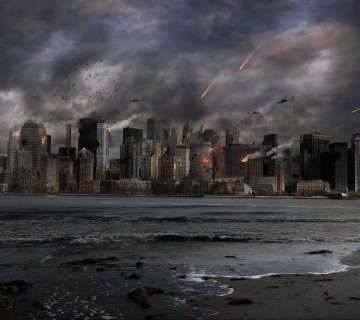
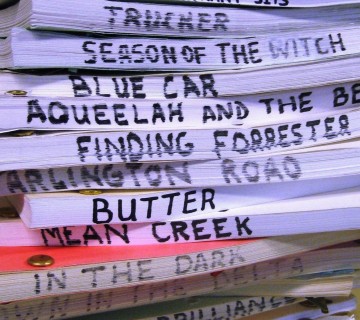
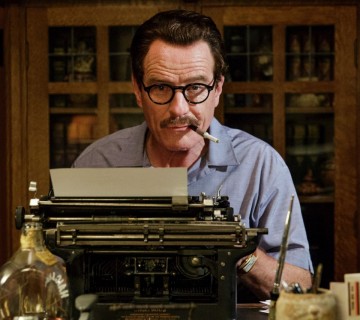
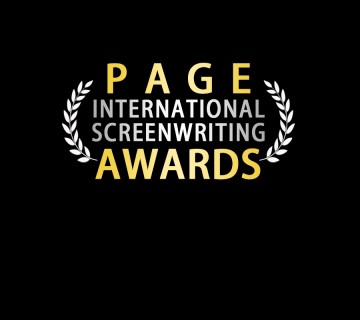

Join the Conversation →